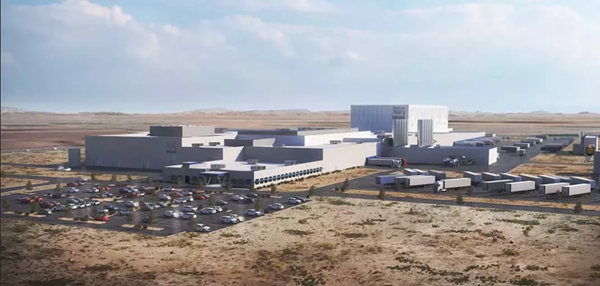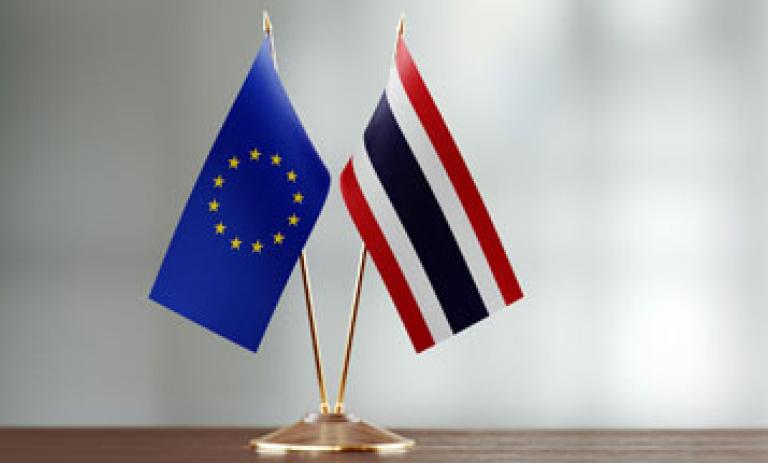1. Nestle opens new $675m Arizona manufacturing site
In a significant move to bolster its manufacturing capabilities in the United States, Nestlé has inaugurated a new beverage factory and distribution center in Glendale, Arizona. This $675 million investment marks a major milestone for the Swiss food and beverage giant, as it continues to expand its presence in the US market.
A Strategic Investment
First announced in March 2022, the new facility spans nearly 58,500 square meters and is expected to create approximately 300 jobs in the local community. The site will primarily produce creamers for popular brands such as Coffee Mate, Natural Bliss, and Starbucks, with the potential to expand to other beverages in the future.
Daniel Jhung, President of Coffee and Beverage for Nestlé USA, expressed his enthusiasm for the new facility, stating, “Coffee culture is booming across the U.S. as consumers seek more options for customization and experimentation. This new facility will play a key role in helping us deliver for our consumers now, and in the future.”
Community and Economic Impact
The City of Glendale has warmly welcomed Nestlé’s investment. Glendale Mayor Jerry Weiers highlighted the positive impact on the local economy, noting that the partnership with Nestlé will bring jobs and advance the city’s status as a hub for the food and beverage industry. In addition to job creation, Nestlé has also committed to supporting the community through a $100,000 donation to St. Mary’s Food Bank, which will provide nearly 500,000 meals and job training for those facing employment challenges.
Sustainability at the Forefront
Nestlé’s new facility is designed with sustainability in mind. Equipped with advanced water management tools, the factory aims to recycle and repurpose up to 75% of its treated processed water. This initiative aligns with Nestlé’s broader commitment to creating a more sustainable future.
A Growing Footprint
The Glendale site is Nestlé’s 20th food and beverage factory in the US. Over the past several years, the company has invested more than $3 billion to enhance its manufacturing capabilities across the country. This includes recent investments in South Carolina and Wisconsin, as well as global expansions in Spain, the UK, Vietnam, and Italy.
As Nestlé continues to grow its manufacturing footprint, the new Arizona facility stands as a testament to the company’s dedication to innovation, sustainability, and community support.
2. Harmony Energy opens new New Zealand solar farm
 In a significant move towards renewable energy, Harmony Energy Limited, a UK-based company, has partnered with New Zealand’s First Renewables Limited to develop the Tauhei Solar Farm. This project, set to be New Zealand’s largest solar farm, marks a major milestone in the country’s efforts to transition to cleaner energy sources.
In a significant move towards renewable energy, Harmony Energy Limited, a UK-based company, has partnered with New Zealand’s First Renewables Limited to develop the Tauhei Solar Farm. This project, set to be New Zealand’s largest solar farm, marks a major milestone in the country’s efforts to transition to cleaner energy sources.
Project Overview
The Tauhei Solar Farm will be constructed on 182 hectares of land near Te Aroha in the Waikato region. With a capacity of 202 MW, it is expected to generate 280 gigawatt hours of electricity annually, enough to power approximately 35,000 homes. The project has successfully reached financial close, with all major contracts, financing, consents, and regulatory approvals in place.
Economic and Environmental Impact
The construction phase, spanning two years, will create around 350 full-time equivalent jobs at its peak. Once operational, the solar farm will not only provide permanent employment opportunities but also support local biodiversity by creating a wetland and allowing for continued agricultural use of the land.
Partnership and Support
Harmony Energy and First Renewables have appointed Elecnor, a global leader in renewable energy engineering, as the lead construction partner. The project is backed by a syndicated debt facility from ANZ, ASB, BNZ, and MUFG Bank, and has secured a power purchase agreement with Meridian Energy, which will buy 100% of the output for the first ten years.
Future Prospects
Garth Elmes, Managing Director of Harmony Energy New Zealand, expressed excitement about the project’s potential to contribute to the decarbonization of New Zealand’s energy system. The Tauhei Solar Farm is expected to be commissioned by late 2026, providing a significant boost to the country’s renewable energy capacity and resilience.
3. Thai EU FTA by 2026

Image credit European Union in Thailand
In a significant move to bolster its economic ties with Europe, the Thai government has announced its ambitious goal to finalize free-trade agreements with all European Union member states by the end of the year. This initiative is part of Thailand’s broader strategy to enhance its global trade position and stimulate economic growth.
Strategic Economic Diplomacy
Prime Minister Paetongtarn Shinawatra emphasized the importance of these agreements in a recent statement, highlighting their potential to increase Thailand’s competitiveness on the global stage. “Concluding FTAs with the EU will open new markets for Thai products, attract foreign investments, and create jobs,” she said.
Key Negotiation Points
The negotiations, which have been ongoing since early 2023, focus on several critical areas, including market access for goods and services, investment protection, and the removal of trade barriers. The agreements aim to address issues such as intellectual property rights, sanitary and phytosanitary measures, and digital trade.
Economic Benefits
The anticipated FTAs are expected to significantly boost Thailand’s exports, particularly in sectors like electronics, automotive, and agriculture. In return, Thailand will import high-quality goods from the EU, including pharmaceuticals, machinery, and luxury items. The agreements are projected to generate billions in economic benefits and position Thailand as a leading investment hub in Southeast Asia.
Challenges and Opportunities
While the potential benefits are substantial, the Thai government acknowledges the challenges ahead. Legal adjustments and regulatory changes will be necessary to align with EU standards. The Ministry of Commerce has initiated public consultations to ensure that the agreements meet the needs of all stakeholders.
Commerce Minister Pichai Naripthaphan noted, “These FTAs will not only enhance our trade relations with the EU but also set a benchmark for future agreements with other strategic partners. We are committed to ensuring that the benefits are widely shared across all sectors of the economy.”
Conclusion
As Thailand moves forward with its ambitious trade agenda, the successful conclusion of FTAs with the EU by year-end will mark a significant milestone in the country’s economic diplomacy. The government remains optimistic that these agreements will pave the way for a new era of prosperity and growth.






